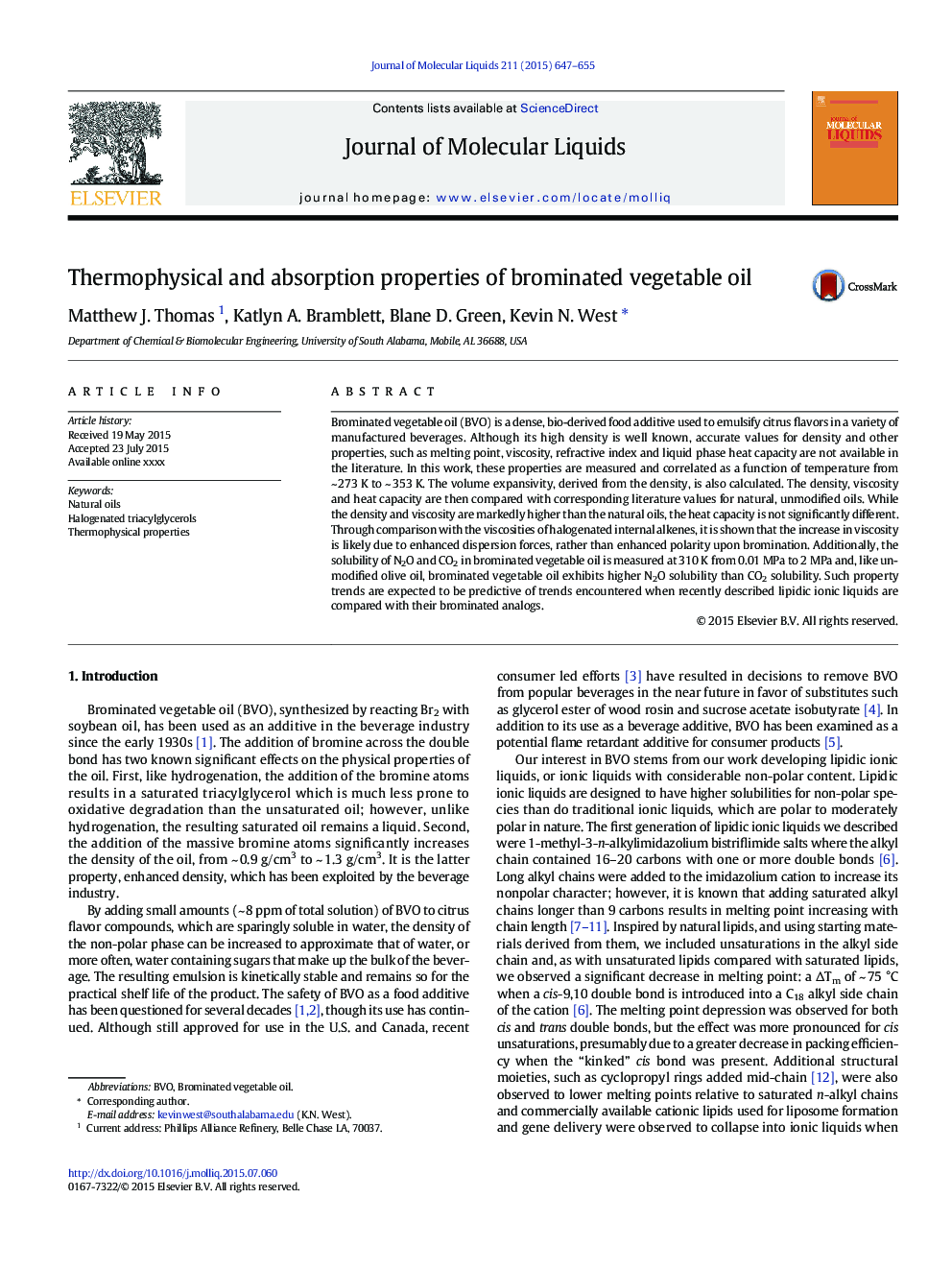| Article ID | Journal | Published Year | Pages | File Type |
|---|---|---|---|---|
| 5410679 | Journal of Molecular Liquids | 2015 | 9 Pages |
Abstract
Brominated vegetable oil (BVO) is a dense, bio-derived food additive used to emulsify citrus flavors in a variety of manufactured beverages. Although its high density is well known, accurate values for density and other properties, such as melting point, viscosity, refractive index and liquid phase heat capacity are not available in the literature. In this work, these properties are measured and correlated as a function of temperature from ~Â 273Â K to ~Â 353Â K. The volume expansivity, derived from the density, is also calculated. The density, viscosity and heat capacity are then compared with corresponding literature values for natural, unmodified oils. While the density and viscosity are markedly higher than the natural oils, the heat capacity is not significantly different. Through comparison with the viscosities of halogenated internal alkenes, it is shown that the increase in viscosity is likely due to enhanced dispersion forces, rather than enhanced polarity upon bromination. Additionally, the solubility of N2O and CO2 in brominated vegetable oil is measured at 310Â K from 0.01Â MPa to 2Â MPa and, like unmodified olive oil, brominated vegetable oil exhibits higher N2O solubility than CO2 solubility. Such property trends are expected to be predictive of trends encountered when recently described lipidic ionic liquids are compared with their brominated analogs.
Related Topics
Physical Sciences and Engineering
Chemistry
Physical and Theoretical Chemistry
Authors
Matthew J. Thomas, Katlyn A. Bramblett, Blane D. Green, Kevin N. West,
